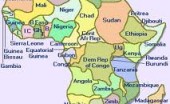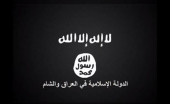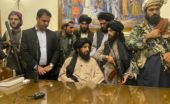Johannah Bernstein post: "eternally proud of my father’s extraordinary aeronautical engineering. legacy. here is a photo of the Canadair Water…
Wednesday Night #1639
Written by Diana Thebaud Nicholson // July 31, 2013 // Wednesday Nights // Comments Off on Wednesday Night #1639
The surprise appearance of Karl Moore added an unexpected – and as always interesting – dimension to the discussion.
It is becoming more apparent that democracy, in many of the nations of the world has, in many instances, become a catch word useful in benefiting, in some instances those who do not merit the claim to being its standard bearer. In Mali, corruption has sapped the country. Egypt, under former President, Hosni Mubarak, resembled, in effect, an oligarchy with no evident successor, mostly stage-managed in a manner somewhat similar to the situation in Venezuela. What had the appearance a coup is rumored to have actually been staged by the private sector. The Egyptians had been hoping for a change that never happened.
Collective memory can be a mixed blessing. Certainly, in some instances, the positive lessons learned from history have enabled the current generation to enjoy a longer, healthier and for the most part, more satisfying life than that of our ancestors. However, in addition to the religious and/or philosophical prejudices that divide humans who are otherwise indistinguishable, irrational fears arising from a frequently flawed negative reaction to events, have retarded the ultimately inevitable changes in the sources of energy that have played an enormous part in enabling homo erectus to dominate the planet. It appears incredible that the tragedy of coal mine accidents, although admittedly infrequent, the poorly-publicized pipeline leakage, and of course, the latest Lac-Mégantic tragedy, are accepted as inevitable human error, as is the transport of radioactive material for medical use, whereas nuclear energy is rejected.
It would be foolhardy to believe that nuclear energy is as safe as spring water emerging from the rocks, but even its disasters have not been life threatening. Perhaps the confusion might be linguistic, in the similarity between the terms nuclear energy and nuclear bomb. For those old enough to recall the devastation and guilt following the allied bombing of Hiroshima and Nagasaki, justified by the presumed lesser human slaughter than the continuation of World War II, nuclear energy remains a force to avoid at all cost. However, in the light of the constantly increasing need for safe, clean, continuous energy, although carbon based fuels will certainly be required, especially for those applications requiring mobile, light energy sources, we would do well to become more objective in our assessment of greater use of nuclear energy.
Quotes of the Evening
– CEOs are frequently groomed rather than chosen.
– What is a timeless wisdom?
– Information used to be power but with Google, that’s not necessarily so.
P R O L O G U E
We were shocked and deeply saddened to read of Robert Travers’ sudden death on Saturday. Services will be held at St. Augustine’s of Canterbury, 5333 Ave. Notre Dame de Grace, NDG on Thursday, August 1st, 2013 at 7 p.m. with reception to follow. His stories of and insights into commercial dealings with China will be much missed, along with his unfailing good humour.
We seem to complain more and more frequently about the generally grim state of the world.
The situation in Egypt is fraught. The EU’s Catherine Ashton has bravely waded into the crisis, and has even met with Mr. Morsi, however as the BBC analyst states:
Egyptians are discovering in a more public and painful way than other Arab Spring states that removing long-standing authoritarian rule is a lot easier than replacing it with another system of governance.
The priority of the popular uprisings was to topple dictatorships, and little thought was given to what might come next.
The general assumption was that freeing Arab countries from autocracy would automatically herald democracy. But this is where the Arab Spring has come unstuck. For a prerequisite of democracy is politics.
In order for politics to flourish one needs open debate. Yet open debate is not easy to achieve in a country like Egypt where there is no [recent] tradition, from school onwards, of the frank analysis of ideas, and the free and peaceful exchange of opinions.
Tunisia is encountering very similar problems since the assassination of Mohammed Brahmi, a leading opposition figure on Thursday. Observers are not slow to make the connection: Unrest in Egypt fuels tensions between secular and Islamist groups …
Meantime, representatives of Israel and Palestine are meeting in Washington to talk about talks, discussing the agenda, process, venue … nobody has yet mentioned the configuration of the table which, if memory serves, was a major sticking point for the Paris Peace talks ending the Vietnam war. So far, according to Secretary Kerry, so good. PBS Newshour provided a good analysis of what gestures need to be made even before the talks begin. The Financial Times is gloomier and predicts that nothing will come of these preliminaries.
While, in Turkey, the authorities have freed a kestrel accused of spying for Israel. Reuters reports that the bird was put in an X-ray machine at a university hospital to check for microchips or bugging devices, according to the Milliyet newspaper, which carried a front-page image of the radiogram with the title “Israeli agent”. Seriously!
Elections in Mali appear to have taken place in relative calm; the tally indicates that former Prime Minister Keita leads by a wide enough margin to preclude a second round. But the prelude to Wednesday’s elections in Zimbabwe has been characteristically murky with Mugabe campaigning on policy of indigenisation (surely one of the most unpronounceable catchwords we have heard). The question now is what happens if Mugabe loses? The Guardian worries that After military intervention in Egypt … if Mugabe loses at the polls, the same will happen in Zimbabwe. Some senior military officers loyal to Mugabe have strongly indicated that they would not accept Tsvangirai as president.
Half-way round the world, Pakistan has renewed worries thanks to Monday night’s jailbreak during which Taliban militants freed hundreds – including ‘dangerous terrorists’. So much for the previous ‘promising’ peace talks. This event has naturally overshadowed the Asian Development Bank report that described Pakistan as “one of the most water-stressed countries in the world” warning that Pakistan’s New Big Threat Isn’t Terrorism—It’s Water
The terrible event at Lac-Mégantic seems to have set off a series of train disasters – in France, in Spain, even in safe/solid Switzerland , as well as a train derailment on the Alberta/Saskatchewan border (fortunately no spillage from the seven oil tankers). Quoting some expert, The Guardian tells us ‘Railway accidents happen because someone makes a mistake’ – obviously, but the mistakes may be individual or attributable to the failure of collective authorities to provide or enforce adequate regulation and/or suitable oversight. This seems to have been the case for Lac-Mégantic.
Some quick headlines for you to explore:
Bill Seeks to Halt Bee-Killing Pesticides in U.S. – sort of closing the door after the bee has left the hive, but a very, very important issue for food security.
Pope Francis on gays: ‘Who am I to judge?’ – the statement that received almost more publicity than his hugely successful trip to Brazil
‘Rivers’ in air could boost flooding
Only identified about 20 years ago, atmospheric rivers are intense bands of moisture that flow through the air.
Known to be responsible for heavy rainfall, they have been blamed for severe flooding in California and the UK.
Obama disputes Keystone pipeline job numbers, says it could increase gas prices in U.S. – what IF the President does not approve Keystone? Do the governments have a Plan B?
Halliburton Admits It Destroyed Evidence to Make Itself Look Better During the BP Spill – from the company we have all learned to love to hate
Regarding government support for restoration of properties damaged in the Alberta floods
A spokesperson for Alberta Municipal Affairs suggests that money will only be available to restore things to exactly how they were before, not, for example, to harden the assets against future natural disaster by using more durable materials. Does this make sense?
As usual, a cheerful item to end on: duelling Church billboards – priceless!



